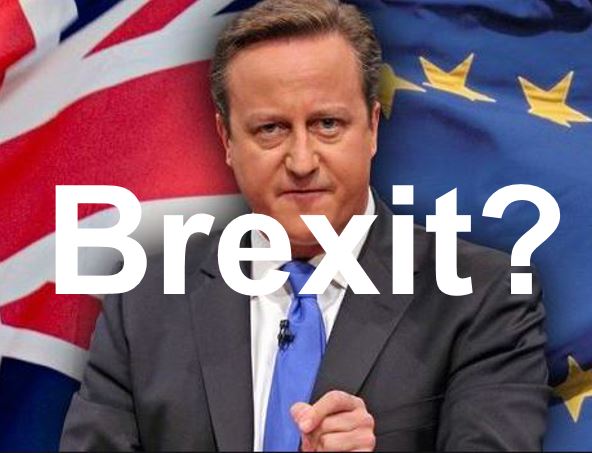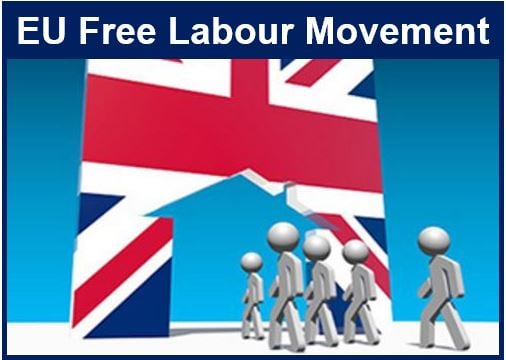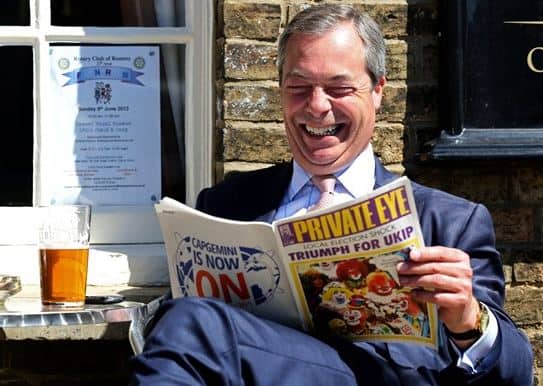The UK leaving the EU and opting for a Norway-style relationship with the trading bloc would not lead to a ‘land of milk and honey’, Prime Minister David Cameron warned from Iceland, where he is meeting with Northern European leaders.
Norway has to abide by many EU regulations, including immigration policy, and pays a fortune for the privilege of having a special trade agreement with the bloc, he said.
Mr. Cameron, who is trying to negotiate the terms of the UK’s EU membership, says he would like to remain in a ‘reformed EU’. He says he rules nothing out (whether to advise staying or leaving) if he cannot get the changes he wants. High among them is the free movement of labour.
 Is Mr. Cameron pro- or anti-Brexit? He has kept his cards close to his chest. However, today’s comments suggest he is pro EU.
Is Mr. Cameron pro- or anti-Brexit? He has kept his cards close to his chest. However, today’s comments suggest he is pro EU.
Mr. Cameron will use the meeting in Iceland, which will be attended by the leaders of Sweden, Norway, Finland, Denmark, Lithuania, Latvia, Estonia and Iceland, to talk about his EU reform plans.
Brexit supporters promote the Norway-style option
Many Brexit (Britain Exit the EU) supporters argue that the country would be better off leaving the EU and negotiating a Norway-style trade agreement.
If the UK became like Norway, it would have absolutely no say on EU legislation, but would have to adhere to many of its regulations, including those the British people do not like.
Norway, unlike the UK, has no veto in the European Council, no MEPs or votes in the European Parliament, no votes in the EU’s Council of Ministers, and no help from the European Commissioner.
UK wouldn’t be free of EU migrant rules
If Britain left the EU and adopted a relationship like Norway has, it would have to sign up to free the movement of people rules, i.e. nothing would be achieved regarding the number of EU migrants moving to the UK.
 Chris Lawton, from the Economics Division at Nottingham Business School, says research suggests that the UK benefits from migration both economically and fiscally.
Chris Lawton, from the Economics Division at Nottingham Business School, says research suggests that the UK benefits from migration both economically and fiscally.
Norway, which takes in more than twice as many EU migrants per head than the UK does, has no say over EU rules, while Britain still does (because it is an EU member state).
The BBC quotes an unnamed source who said:
“So how would becoming like Norway in anyway help addressing public concerns over EU migration?”
Nigel Farage, the anti-EU UKIP leader, has often mentioned Switzerland, Iceland and Norway as examples on Non-EU European states that have done very well outside the Union. He says those nations are not burdened with the massive costs of being full EU members.
Anti-EU supporters say Iceland, Norway and Switzerland are free to negotiate deals across the world to suit their individual requirements.
Those in favour of staying within the European Union argue that the trading bloc has much more clout when negotiating with the likes of the United States and China than each individual nation would have on its own.
 Nigel Farage believes the Norway option would be good for Britain.
Nigel Farage believes the Norway option would be good for Britain.
Not all pro-Brexit campaigners are in favour of the ‘Norway option’ if the electorate votes to leave in a promised (by Cameron) referendum that will take place before the end of 2017. The ‘Vote Leave’ campaign says the UK should carve out its own deal if people vote to leave the Union.
In an article in the Guardian, former Norwegian foreign minister, Espen Barth Eide, argued that the Norway-option is not suitable for the UK. Eide wrote:
Mr. Eide, who is currently managing director at World Economic Forum, said
“You can’t have your cake and eat it too. For the UK, a major country and a long-standing, influential member of the EU, voluntarily to choose to move out of the core and into the outer circle, in order to join those influenced by but not influencing Brussels, would in my view be an entirely different matter.”
“The reality is that every single western European country has chosen to take part in the European integration process in some shape or form. Not a single one has felt comfortable with just a classical free trade agreement.”
Video – Cameron’s EU message in Iceland
